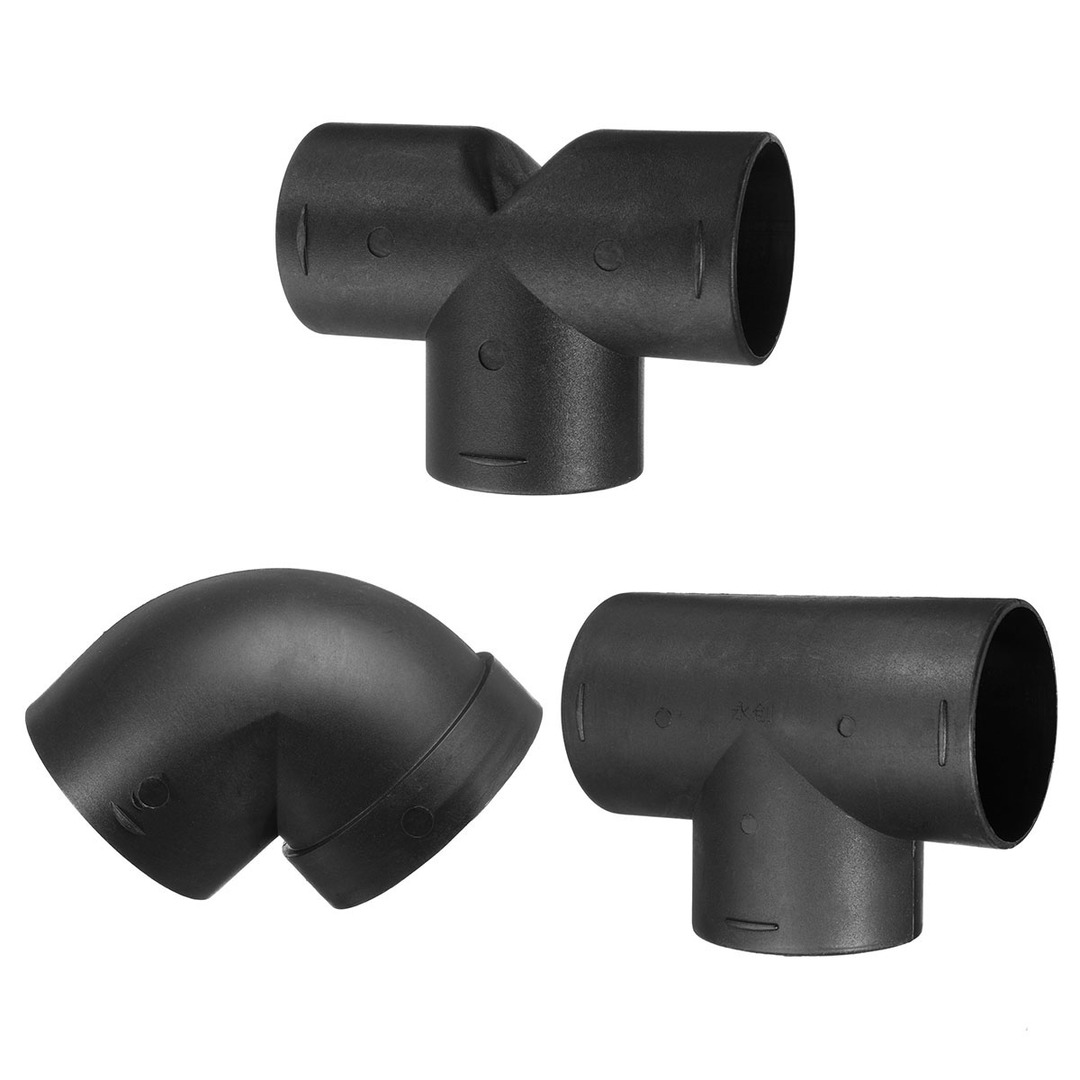For one dacha is a resting place where he spends time, comfortably sitting on a deckchair. The second is aimed at harvesting, and the third uses it as an outdoor workshop. But, what would not be a dacha for its owner, electricity in the suburban area will improve the quality of the owner's rest and expand the scope of its possible activities.
Our article will help in choosing a generator used in rare cases, or on the contrary, capable of providing electricity to the summer residence site all day long.
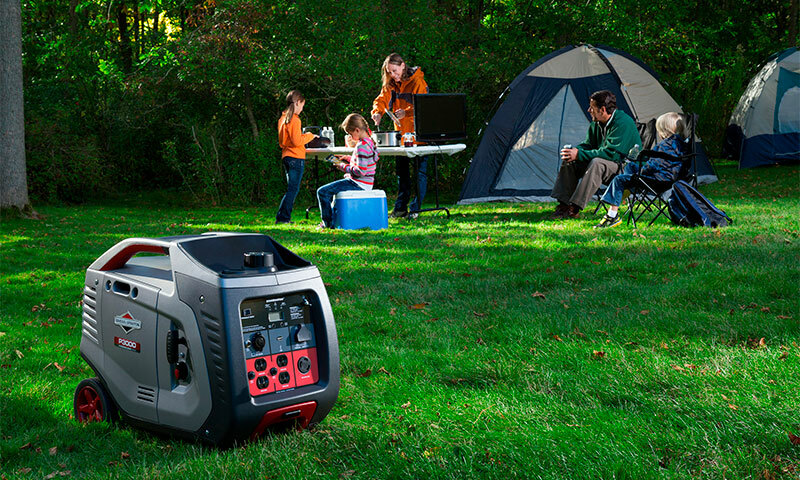
Contents:
- The best generator manufacturers for dachas
- The design and operation of the generator
- Generator types
- Parameters of the generator selection for a summer residence
- What generator for a summer residence choose
- How much does an
generator cost? The best manufacturers of generators for a summer residence - which firm to choose
When choosing an electric generator,manufacturers, whose products have proven themselves in the market in the best way.
If it is not possible to dive into the study of equipment features, we recommend that you pay attention to generators of trade marks:
1. Champion
2. Fubag
3. Hyundai
4. Patriot
5. Bison
You can save time and get acquainted withspecific models of equipment in the ranking of the best generators for cottages. To draw conclusions about the advantages and disadvantages of different types of generators and to understand what installation parameters are necessary in a particular case, you can after reading the article.
Design and operation principle of generators
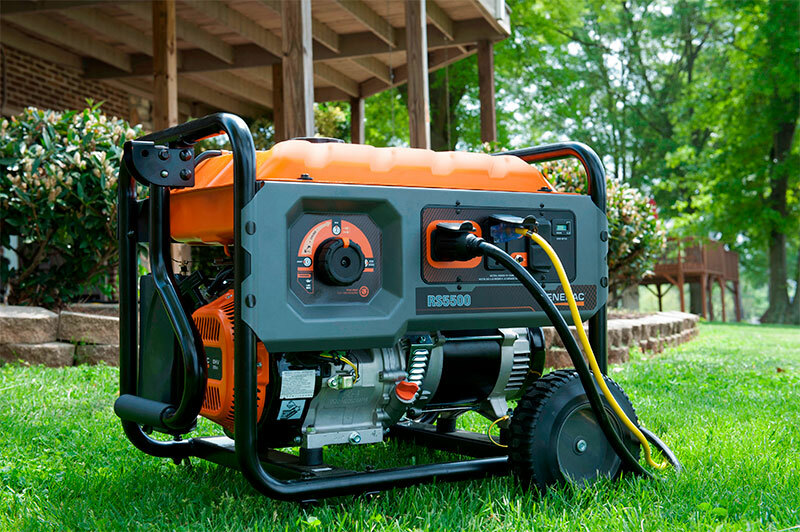
Main components and components of the generator:
1. Frame - steel construction, inside which all other units are attached.
2. An internal combustion engine is a source of mechanical energy.
3. The generator( alternator) is a converter of mechanical energy into electrical energy.
The alternator converts the mechanical energy of the rotating motor shaft into electrical energy.
Its main elements are:
- A stationary stator consisting of a core and winding;
- Movable rotor( electromagnet) located inside the stator;
- The motor shaft rotates the rotor, causing changes in the stator magnetic field, an induction current arises.
The method of transferring the magnetic field to the stator windings depends on the design of the alternator, which can be:
1. Synchronous - using brushes( brushes - sliding contacts on the rotor).
2. Asynchronous( brushless) - the residual magnetization of the rotor is applied to the stator.
Types of generators
Types of generators and their application depending on the working fuel
Diesel units
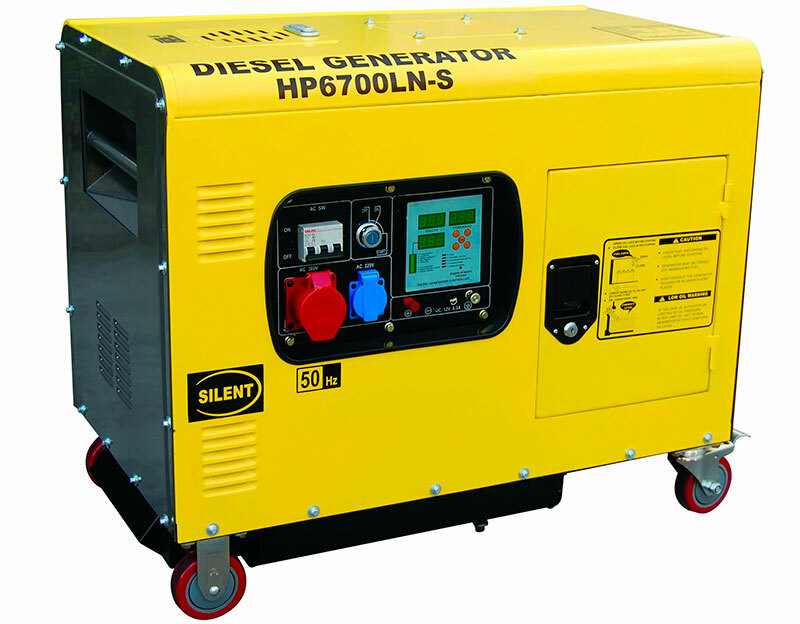
The generator working on diesel fuel is the best option for permanent supply of a dacha. If the suburban area is located in a locality where there are no power lines, this autonomous energy source can become a full-fledged alternative.
The peculiarity of the equipment is stable working conditions even with continuous use without interruption. Diesel fuel burns better after heating the engine, while the percentage of emissions of harmful substances, including carbon monoxide, into the atmosphere is significantly reduced.
The generator can be used without interruption for a certain time. The maximum duration of non-stop operation depends on the model of the device. The determining factor is the volume of the tank.
On average, the generators designed for use in the suburban area operate in a continuous mode from 8 to 12 hours. After this, it is necessary to refuel the equipment before which the generator must cool down. To refuel the operating power plant is strictly prohibited by the manufacturers.
Advantages:
- The possibility of continuous operation for a long time;
- Long service life due to a significant diesel engine power;
- Economical due to lower fuel consumption compared to the "appetite" of the gasoline generator and a lower price for diesel fuel. With equal operating conditions and recommended load of 75%, the diesel "eats" for an hour of fuel is 60% less;
- Safety - accidentally spilled diesel fuel does not evaporate and does not form flammable vapors.
Disadvantages:
- The price is higher than for gasoline generators;
- Higher noise level;
- Minimum load not less than 30%;
- Guaranteed starting at -5 ° C.In winter, heating is necessary, use of seasonal fuel;
- The need for regular maintenance.
Gasoline Installations
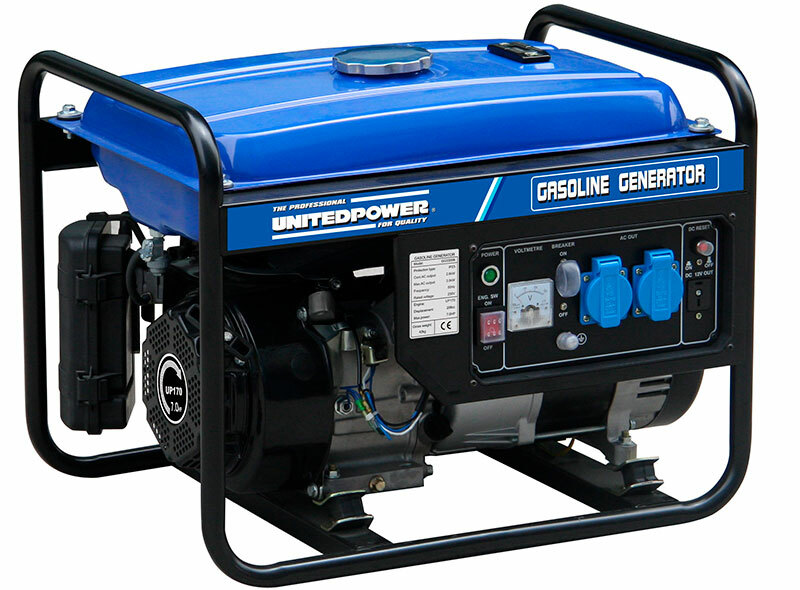
If the generator is intended to be used in short periods of time in the event of a power outage, the correct choice is a gasoline generator.
Fuel for stations - high-octane grades of gasoline( A92, A95).The specific composition and other characteristics of the fuel is determined by the manufacturer.
Advantages:
- Low price;
- Ease of maintenance( need to clean the spark plugs from time to time);
- Low noise;
- Wide temperature range of operating modes. Guaranteed launch even in frosts at temperatures up to -20 ° C;
- Compact and light weight in comparison with diesel stations;
- It's easy to find gasoline if the reserve for the generator has unexpectedly ended - you can drain the fuel from your car's fuel tank or borrow it from other motorists;
- Possibility of installation in a room with exhaust, which provides exhaust gas flow.
Disadvantages:
- Can not work for a long time without interruption( 4-8 hours duty cycle) - need a technical break for cooling;
- High fuel consumption: on average they consume 60% more fuel than diesel stations. Gasoline is more expensive than other types of fuel;
- Relatively low service life;
- Need protection from moisture.
Gas Installations
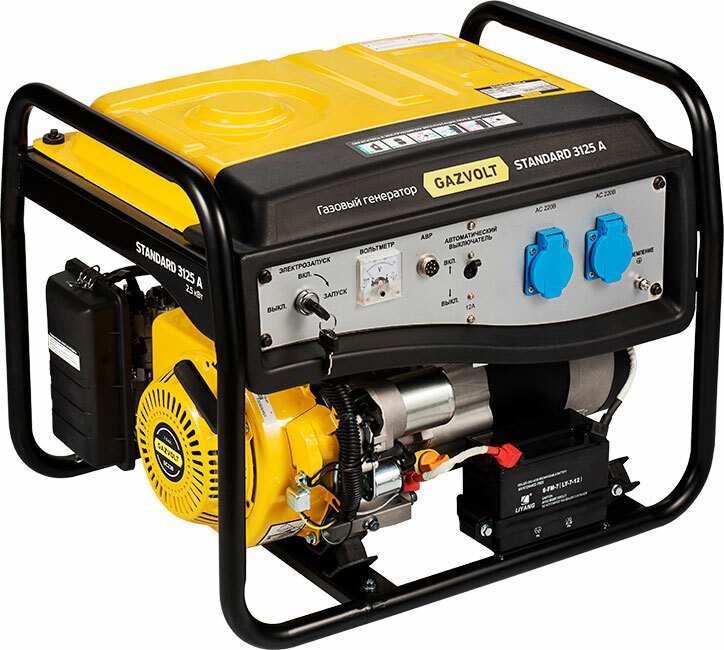
The gas generator is rationally used in a suburban area that is gasified( a gas main has been built) or there is a place for storage of gas cylinders in the country house.
It should be noted that the installation of any equipment operating on gas must be coordinated with the local gas service. In this case, the employees of the service need to provide documents that are issued at the acquisition of the station: the certificate and the technical passport of the generator.
The stable operation of the gas station is affected by gas pressure ranging from 2 thousand to 6 thousand Pa. If the equipment is designed for the use of main gas, it must be ensured that the pressure in the pipes corresponds to this limit.
Advantages:
- The energy produced by the gas generator is the cheapest. About 0,3 m³ of gas is needed to produce one kilowatt of electricity. If the cost of the main gas is 4.5 rubles per 1 m³, the price of 1 kW of electricity will be equal to 1.35 rubles;
- Increased service life and easy maintenance: the gas does not form solid combustion products, which affect the wear of parts;equipment does not need periodic cleaning;
- In addition to electric power, the gas generator generates heat, which can be used to heat the room, this is especially true for northern and Far Eastern regions( specially designed models are used to warm the housing);
- High efficiency of the installation - when using balloon gas, it exceeds the efficiency of diesel and gasoline generators by 2 times, and when using the main line - by 15-17 times.
Disadvantages:
- High price;
- More complex construction in comparison with diesel engines and gasoline generators - in case of equipment failure, the help of specialists from service centers will be required;
- Additional installation costs and the need for its approval with the gas service.
Combined units
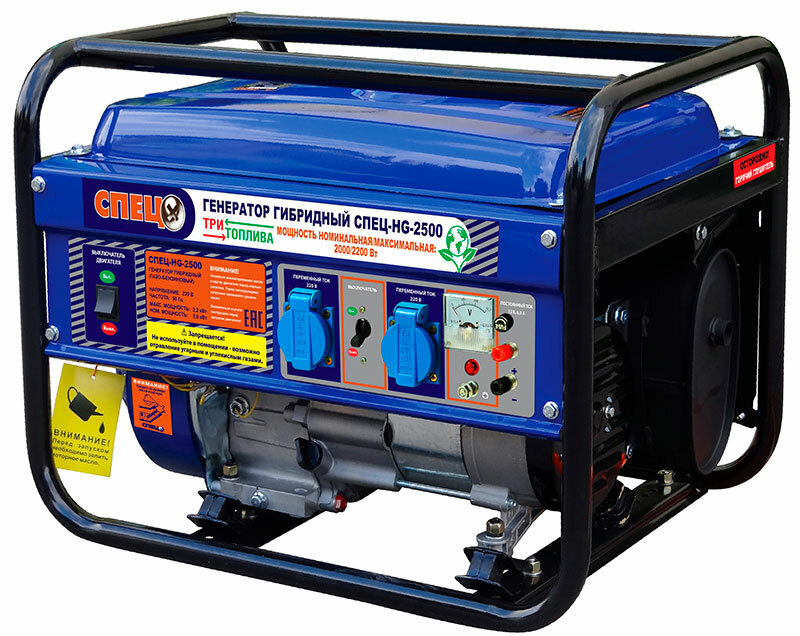
Multi-fuel models are designed to use several types of fuel: gasoline, liquefied balloon gas and( or) main gas.
Advantages:
- Combination of reliability and convenience of gasoline generators and economical and environmentally friendly gas equipment.
Disadvantages:
- High price.
Application of the equipment depending on the alternator, features of the
inverter generator. Depending on the type of alternator installed in the equipment, the possibility of using an electric generator for feeding different electrical equipment groups( sensitive to voltage spikes or creating large peak loads) is dependent on the type of alternator installed in the equipment.
Synchronous generator
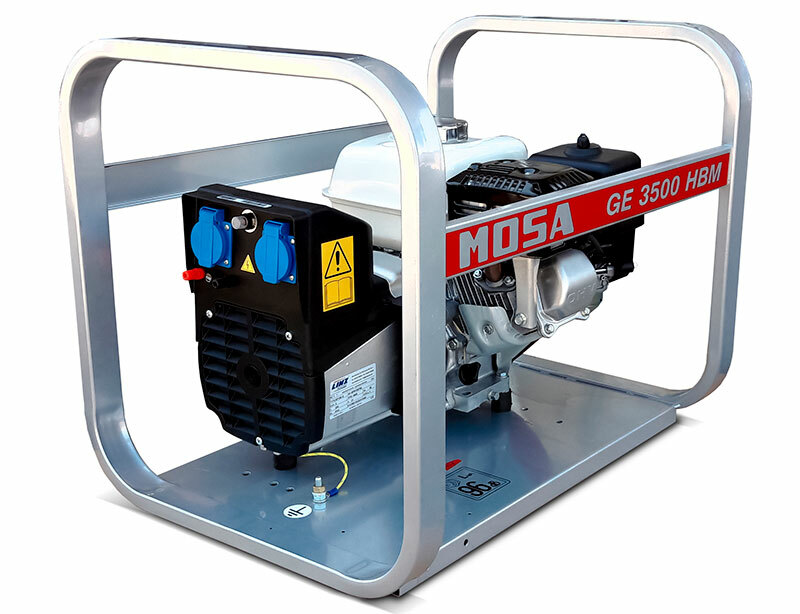
A synchronous generator is installed in the dacha where electrical appliances susceptible to voltage drops( TV, computer, refrigerator) will be used.
Advantages:
- Provides high quality current, output voltage without jumps and drops;
- Withstands three-time transient overloads;
- Reliability.
Disadvantages:
- The sliding of the brushes along the rotor causes it to overheat. Air cooling of the rotor with the help of a fan provokes drawing inwards of dust and dirt. With active use, the equipment requires regular maintenance;
- Inexpensive models have a low protection class;
- Need to replace brushes that wear out over time;
- Higher price compared to brushless models;
- Generates radio interference.
Asynchronous generator
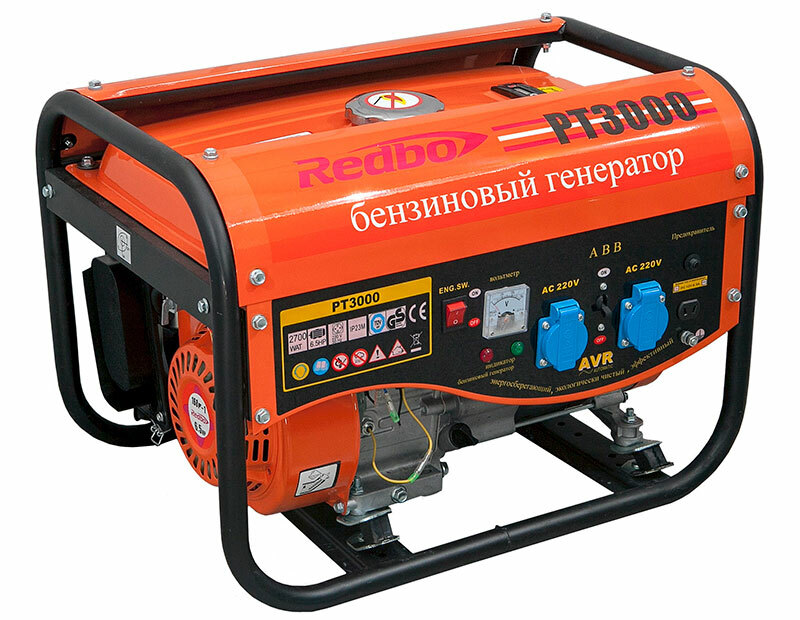
If a building site is being built and welding works or the generator is supposed to be used outdoors, an asynchronous generator is needed.
Advantages:
- Lower price;
- The rotor does not overheat;
- High degree of protection against dust, dirt, moisture;
- Smaller sizes and weights;
- It is not afraid of short circuits, which is important when connecting the welding machine.
Disadvantages:
- Low current quality and unstable voltage;
- Not capable of carrying peak loads( increased power consumption when switching on devices with motors and heating elements).
Inverter Generator

The inverter generator is recommended to be purchased at the dacha for supplying sensitive electronics. The peculiarity of the generator is that the generated current is not transmitted directly to consumers. Initially, the alternating current is converted to a constant one, after which it is accumulated in the battery. Then it should be converted again into alternating current, but with ideal parameters and the subsequent distribution to consumers.
Advantages:
- High current output;
- Economical due to reduced fuel consumption - engine speed depends on current needs( in ordinary generators this speed is constant);
- Compact( the size and weight are almost half the size of conventional equipment);
- Low noise.
Disadvantages:
- High price;
- The battery can not be replaced by yourself. In case of its failure it is necessary to address to experts.
Using two-stroke and four-cycle generators
Internal combustion engines installed in generators differ in the number of cycles( stroke - the movement of the piston up or down), during which the working cycle is carried out.
Four-cycle generator
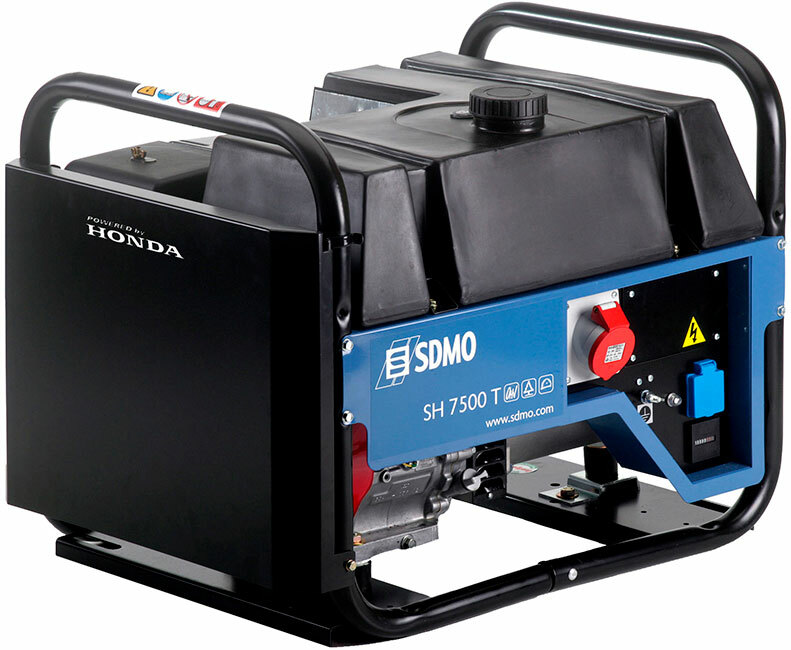
For a summer residence where it is intended to use the station for long periods of time( 5-10 hours, round the clock), a generator with a four-stroke engine is required. As a rule, such an engine is installed in equipment with a capacity of more than 1 kW.
Advantages:
- High power;
- Having its own lubrication mechanism with oil, there is no need to prepare an oil-gasoline mixture for refueling. Petrol and oil are poured separately;
- Stability in loads, reliability;
- Economy - fuel consumption is 20-30% lower than for two-stroke;
- Less noisy than two-stroke.
Disadvantages:
- Complexity of design;
- More complex care;
- At low temperatures, it may be difficult to start.
Push-pull generator
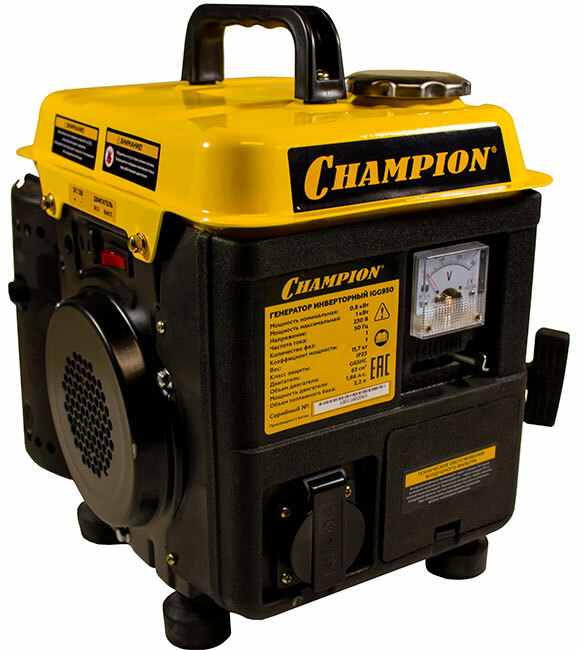
As a backup power source for a dacha where electricity consumers do not need high power, it is possible to purchase a generator with a two-stroke engine.
Advantages:
- It is easy to start at low temperatures;
- It is unpretentious in operation;
- Easy to maintain;
- Has a smaller weight and dimensions.
Disadvantages:
- For refueling it is necessary to prepare a fuel mixture from gasoline and oil in the proportion specified by the manufacturer;
- Higher noise level;
- Toxicity of exhausts.
Using a generator depending on the engine cooling type
During operation, the generator motor heats up and needs to be cooled.
Liquid cooling
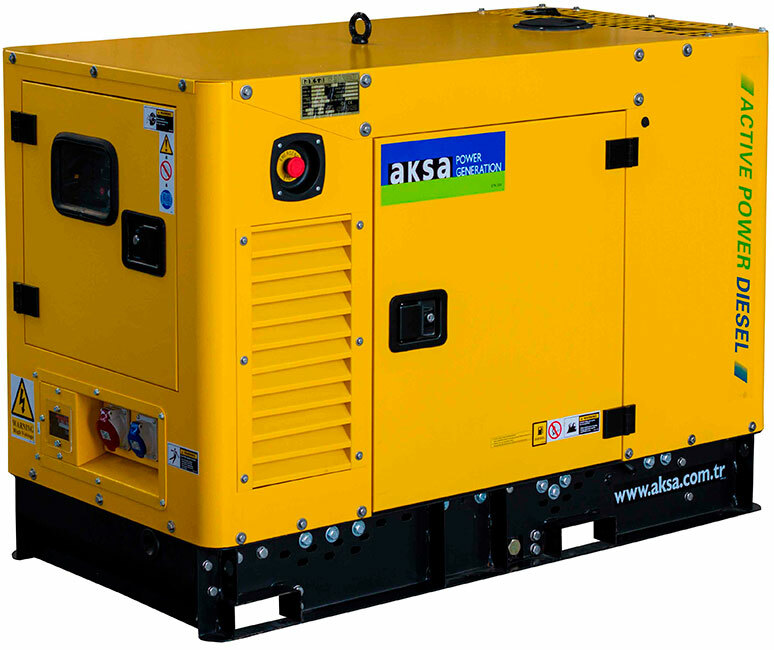
For use as a permanent source of energy in a generator house, liquid cooled equipment is required.
Advantages:
- Great efficiency;
- Smaller equipment size;
- Lower noise level.
Disadvantages:
- High price;
- Complexity of construction;
- Installed on equipment with a power of 4 kW.
Air cooling
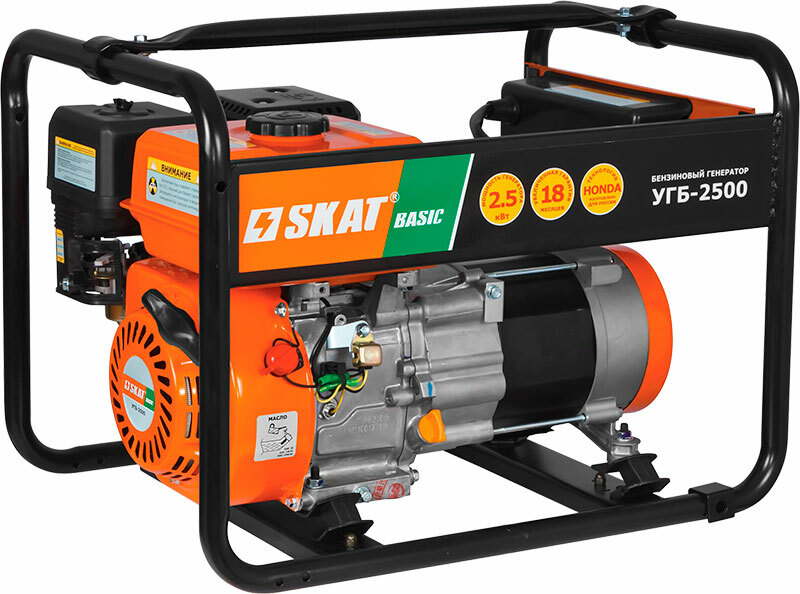
For a generator that will not be used around the clock or for long periods of time, the air cooling of the engine is acceptable. Most models offered by manufacturers are cooled by air.
Advantages:
- Simplicity of the cooling system;
- Low price.
Disadvantages:
- The fan draws dust and dirt inside;
- Insufficient efficiency.
Generator selection parameters for
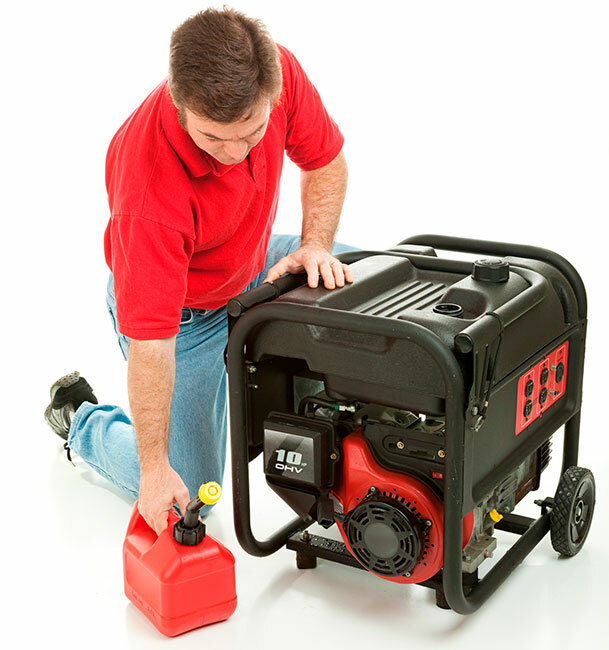
When selecting an autonomous power source, attention should be paid to the following equipment characteristics:
Installed power of the
It is necessary to sum the power of electrical appliances that the generator will serve simultaneously. When calculating for appliances with an electric motor( tool, refrigerator, washing machine) the starting capacity is taken into account. To the received value it is necessary to add 20%.As a rule, gasoline generators are used in the summer cottage, the capacity of which is from 2 kW to 5 kW or diesel engines with a power of 5 to 10 kW.
Type of fuel used
Petrol generators are not designed for continuous use. For permanent use, diesel or gas equipment is selected.
Alternator view
Synchronous generator is recommended for cottages where devices sensitive to voltage surges are used. Asynchronous - for the suburban area, the owner of which is building a house, regularly uses a welding machine, erecting greenhouses and other structures.
Fuel tank capacity
The length of the diesel or petrol generator depends on the tank volume without interruption. With a small capacity of equipment, the tank capacity is about 5-6 liters. At an average - from 15 to 30 liters.
Control mode
The following control modes are possible:
1. Manual - starting with the use of physical force( usually on low-budget models of low power up to 4 kW).
2. Electrostart - start by pressing the button or turning the key.
3. Autostart - used for a backup generator that automatically goes into operating mode when the main electric motor is turned off.
The simpler the launch, the more expensive the model. If there is a possibility to pay for comfort, it is necessary to take the generator with an electric start or an autostart.
What generator to give to choose
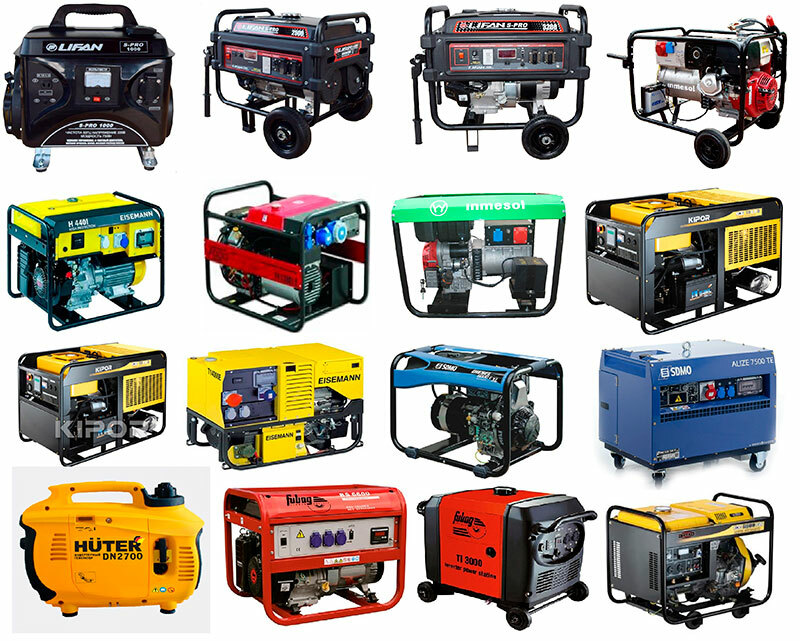
The choice of the generator depends on the future conditions of its operation, the tasks assigned to it by the owner and the size of the dacha:
1. If the cottage is small, with a minimum of electrical appliances, and its owners are resting in the suburban area in the summer weekend -you can buy a gasoline generator with a power from 1 to 2.5 kW.
2. To owners of a gasified summer cottage site that visits it all year round, it is advantageous to purchase a gas installation, having calculated the required capacity. Perhaps you should consider the option of a generator with the function of heating the house.
3. A diesel generator can be recommended to a summer house owner who has a country house where it is planned to use the generator for long periods during the summer holidays.
How much is the generator for giving
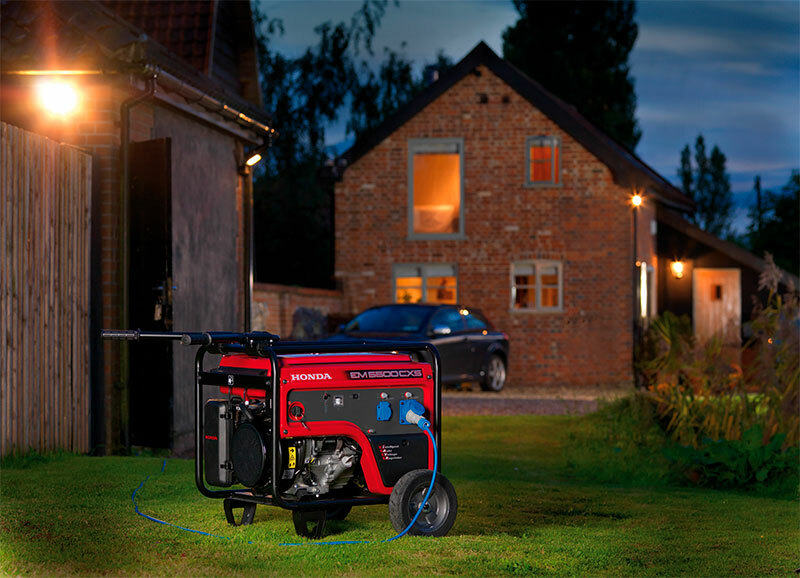
The price for the generator depends on the brand of the model, its technical characteristics, the availability of options:
1. For a device with a power of 2 to 2.5 kW, using diesel as fuel, you will have to pay from 40 to 75thousand rubles.
2. Similar gas equipment will cost from 18 to 40 thousand rubles.
3. The price for a gasoline generator with the same capacity is from 10 to 35 thousand rubles.
The price for equipment of different equipment with a capacity of about 5 kW varies depending on the type of fuel:
1. Petrol - from 22 to 450 thousand rubles.
2. Diesel - from 48 to 760 thousand rubles.
3. Gas - from 40 to 500 thousand rubles.


